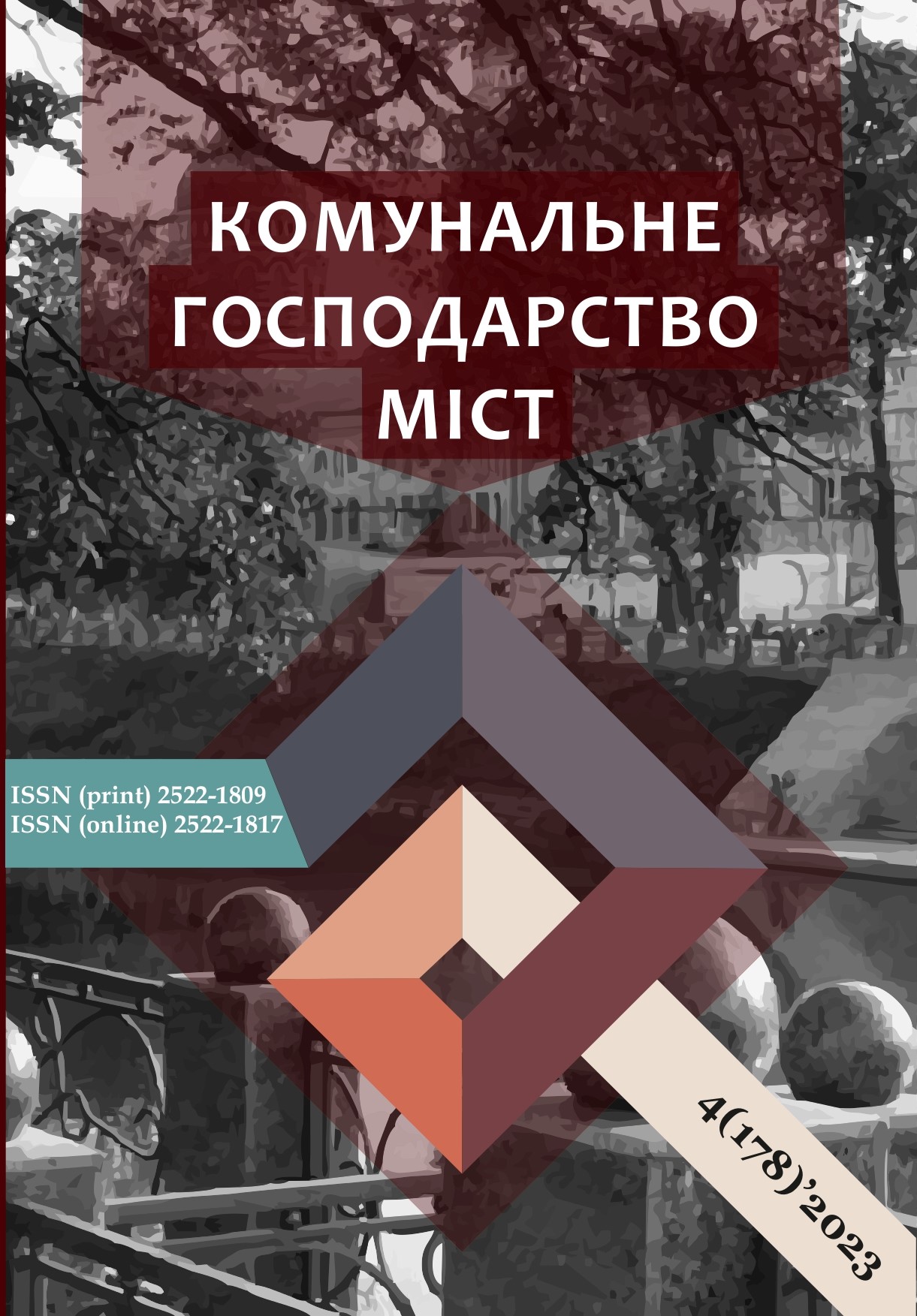THE IMPACT OF LOW-CARBON DEVELOPMENT ON MUNICIPAL UTILITIES (SYSTEMIC APPROACH)
DOI:
https://doi.org/10.33042/2522-1809-2023-4-178-10-16Keywords:
utilities, systems approach, low-carbon development, sustainable development, systems analysisAbstract
Due to the growing awareness of climate change and the serious threats it poses to the planet, more and more attention is being paid to the transition to low-carbon development in all spheres of human activity. Municipal management is an important industry that directly affects the environmental condition of cities and towns, as well as energy consumption and greenhouse gas emissions.
Despite various measures and initiatives to improve the state of public utilities, there are serious problems that make it difficult to effectively transition to low-carbon development.
High levels of pollution: Utilities such as thermal power plants, waste treatment plants, and water supply systems continue to use large amounts of hydrocarbon fuels and technologies that result in significant emissions of greenhouse gases and other harmful substances.
Also, many cities lack the necessary infrastructure and technologies for efficient waste collection and processing, efficient energy saving, and the use of renewable energy sources.
Regarding the provision of adequate financing, most municipalities face limited financial resources, which makes it difficult to implement the latest environmental technologies and programs.
Lack of community awareness and involvement is also an important factor. Many residents of cities and towns do not have sufficient awareness of the importance of low-carbon development and its positive impact on the environment, which makes it difficult to make environmentally-oriented decisions and implement changes in consumer behavior.
In light of these problems, there is a need to create and implement complex strategies and measures to optimize the activities of the utility industry, aimed at increasing efficiency, reducing greenhouse gas emissions, developing renewable energy, modernizing infrastructure, and involving the public in active participation in environmental programs and projects. However, it should be taken into account that each city or village has its own characteristics and requirements, therefore the optimization of communal services should be carried out individually, taking into account the specifics of the local situation.
References
Smith, John. (2019). Towards Low-Carbon Urban Infrastructure: A Comprehensive Review of Strategies for Optimizing Municipal Services. Journal of Sustainable Cities, Vol. 35, Issue 2.
Johnson, Emily. (2020). Greening Municipal Waste Management: A Comparative Analysis of Low-Carbon Waste-to-Energy Technologies. Environmental Science & Technology, Vol. 42, Issue 6.
Brown, Jennifer. (2022). Policy Frameworks for Low-Carbon Urban Planning: Comparative Analysis of Municipal Strategies in European Cities. Environmental Policy and Governance, Vol. 21, Issue 2.
Kim, Min-Jae. (2021). Integrating Renewable Energy Sources into Municipal Power Grids: Challenges and Best Practices for Low-Carbon Electricity Generation. Renewable Energy, Vol. 30, Issue 7.
Wang, Li. (2021). Renewable Energy Integration in Urban Areas: Challenges and Opportunities for Low-Carbon Urban Development. Energy Policy, Vol. 28, Issue 4.
Zhang, Wei. (2021). Climate Change Mitigation in Urban Areas: A Comparative Study of Low-Carbon Strategies and Their Impact on Municipal Greenhouse Gas Emissions. Environmental Research Letters, Vol. 22, Issue 6.
Garcia, Maria. (2022). Public Engagement and Awareness in Low-Carbon City Initiatives: A Case Study of Community-Based Energy Conservation Programs. Journal of Environmental Management, Vol. 18, Issue 3.
Lee, Chang-Hoon. (2023). Innovative Financing Models for Low-Carbon Infrastructure Projects: Lessons from Successful Municipal Initiatives., Vol. 15, Issue 1.
Jackson, David. (2020). Smart Technologies for Energy-Efficient Cities: A Review of Low-Carbon Solutions for Municipal Energy Management. Energy Efficiency, Vol. 25, Issue 4.
Chen, Wei. (2023). Lifecycle Assessment of Municipal Infrastructure Upgrades: A Tool for Prioritizing Low-Carbon Investments. Journal of Cleaner Production, Vol. 39, Issue 5.
Downloads
Published
How to Cite
Issue
Section
License
The authors who publish in this collection agree with the following terms:
• The authors reserve the right to authorship of their work and give the magazine the right to first publish this work under the terms of license CC BY-NC-ND 4.0 (with the Designation of Authorship - Non-Commercial - Without Derivatives 4.0 International), which allows others to freely distribute the published work with a mandatory reference to the authors of the original work and the first publication of the work in this magazine.
• Authors have the right to make independent extra-exclusive work agreements in the form in which they were published by this magazine (for example, posting work in an electronic repository of an institution or publishing as part of a monograph), provided that the link to the first publication of the work in this journal is maintained. .
• Journal policy allows and encourages the publication of manuscripts on the Internet (for example, in institutions' repositories or on personal websites), both before the publication of this manuscript and during its editorial work, as it contributes to the emergence of productive scientific discussion and positively affects the efficiency and dynamics of the citation of the published work (see The Effect of Open Access).

